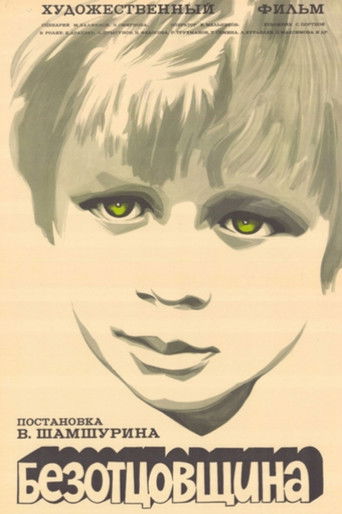"Безотцовщина" (1976), a poignant Soviet film produced by Mosfilm, delves into the complexities of family dynamics and societal issues in post-war Soviet Union. Directed by Georgiy Daneliya, the film explores the life of a young boy, Vitya, who grows up without a father, navigating the challenges and emotional turmoil that come with such a void. The narrative captures the essence of the era, reflecting the struggles of many families affected by the war and the subsequent societal shifts. The film's strength lies in its authentic portrayal of the characters and their interactions. Vitya's journey is marked by his encounters with various adults who attempt to fill the paternal role, each bringing their own baggage and perspectives. The performances, particularly by the young actor playing Vitya, are compelling and add depth to the storyline. The cinematography and setting further enhance the film's realism, transporting viewers to the streets and homes of 1950s Soviet Union. "Безотцовщина" also serves as a social commentary, highlighting the broader implications of fatherlessness on Soviet society. It raises questions about the role of the state and community in supporting families and the long-term effects of war on the younger generation. The film does not shy away from depicting the harsh realities faced by Vitya and his mother, yet it also offers moments of hope and resilience, suggesting that even in the absence of a father, a sense of family and belonging can be found. Overall, "Безотцовщина" remains a significant piece of Soviet cinema, offering a nuanced look at the personal and societal impacts of fatherlessness. Its enduring relevance lies in its ability to resonate with audiences across different cultures and times, reminding us of the universal themes of love, loss, and the search for identity.
Año1976
Duración94 minuto
GénerosDramaRomance
Países de producciónSoviet Union

